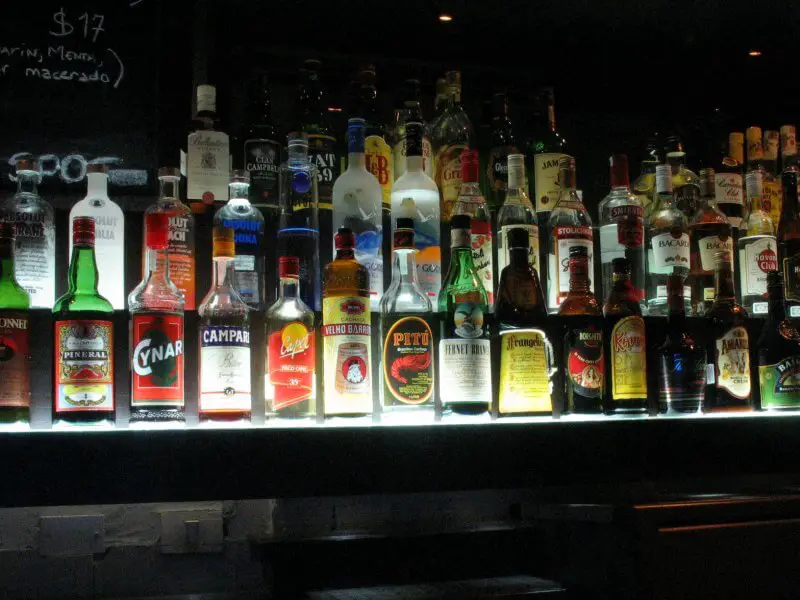
[Note from Mantic59: with the new year holiday celebrations coming up I thought this “diversion” post was appropriate.]
“If recreational drugs were tools, alcohol would be a sledgehammer.”
Dr. Aaron M. White wrote the above quote in an article about alcohol and memory for the National Institute on Alcohol Abuse and Alcoholism (NIAAA).
We know that alcohol in moderation is okay, but it gets dangerous when people abuse alcohol. The key to maintaining your health is knowing when you’re approaching that fine line.
When life is like one big toga party, akin to Animal House circa 1978, it’s safe to say you’ve surpassed your alcohol limit.
But what about those of us who don’t go to such extremes? How do we know when we’re overdoing it with alcohol?
Everyone’s tolerance is different, but a few general guidelines can help you figure out when you’re overdoing it.
First, let’s look at the reasons why this all matters.
Dangers of Consuming Too Much Alcohol
“Drinks” are so ingrained in our society that it’s difficult to imagine life without them. Imagine showing up to watch the big game at your buddy’s house without a beer in sight. Wouldn’t happen, right?
When you want to catch up with an old friend, “grabbing drinks” is usually the first thing that comes to mind.
And there’s nothing wrong with any of this – as long as we all know and stick to our own limits.
If you don’t stick to your limits, well, there are consequences. In fact, there are both short-term and long-term consequences of consuming too much alcohol.
Short-term dangers of binge drinking
Having one or two drinks probably won’t cause any short-term problems. Binge drinking is what causes the real short-term issues. Binge drinking is when you have an excessive amount of alcohol in a short time. Immediate problems include:
-
Blackouts
When a person drinks heavily, forming new memories becomes a problem. Someone who is in blackout period may forget what happened 15 minutes earlier because their brain was unable to record that memory. If you’ve ever had a drunken night you don’t remember, this is what happened.
-
Poor judgement
Alcohol impairs your ability to make sound decisions. This may be why alcohol is involved in up to 30% of adult hospital admissions.
-
Damaged relationships
Alcohol reduces your ability to process information from multiple sources, so you’re more likely to find yourself in an argument or brawl. When your abilities are impaired, it’s easy to misunderstand people’s intentions. This can cause you to say and do things you wouldn’t normally, which can damage good relationships.
-
Trouble with the law
When poor judgement causes you to get behind the wheel of a car while intoxicated, the result can be deadly. If you’re lucky, you’ll get off with a DUI. Even if you’re smart enough not to drink and drive, you could run into other problems with the law. Public intoxication is against the law in most states, after all.
Long-term dangers of drinking too much alcohol
Whether binge drinking or daily drinking, you may run into some long-term dangers of alcohol if you aren’t careful.
-
Alcoholism
Binge drinking is typically considered a type of “problem drinking.” Alcoholism is when you are physically dependent on alcohol. Alcoholics may binge drink, but not all binge drinkers are alcoholics. The best way to know if you are an alcoholic is to try to quit drinking. If your body shows physical signs of withdrawal, you may need help with recovery. Just know that you’re not alone; 1 in 8 Americans are reported alcoholics.
-
Depression
Alcohol is a depressant, and as such, there’s a strong link between alcoholism and depression. A study published in the journal Addiction found that alcoholism may cause a person to develop major depressive disorder.
-
Cancer
According to the National Cancer Institute, drinking alcohol in excess can increase your risk of developing certain types of cancers. Alcohol can raise your risk of head and neck cancers, esophageal cancer, liver cancer, breast cancer and colorectal cancer.
-
Heart attack or stroke
Drinking heavily over a long period of time can increase your risk of high blood pressure and weaken the heart muscle. These things can lead to a heart attack or stroke.
-
Liver damage
Alcohol-related liver damage (ALD) consists of three main types of damage. Most people who drink heavily will experience a fatty liver. This is when excess fat cells accumulate in the liver and interfere with its functioning. If you stop drinking, your liver will return to normal. If you continue drinking, you may develop alcoholic hepatitis. Alcoholic hepatitis can occur suddenly or develop over the years. It can quickly lead to a life-threatening situation, including cirrhosis. With alcohol-related cirrhosis, the normal liver tissue is replaced with scar tissue. Cirrhosis is a life-threatening disease.
-
Premature aging
Although the other items on this list should be more worrisome, this one is powerful because it appeals to our sense of vanity. Drinking heavily for long periods of time can take a toll on the body, and this will begin to show on your skin, hair, eyes and nails.
How to Know When You’ve Had Too Much Alcohol
The trouble with drinking in moderation is the more alcohol you have, the more your body wants. So, before you set out on your evening, determine your limit. According to the Dietary Guidelines for Americans, men should have no more than two drinks a day.
Should you have three drinks on a special occasion, it’s probably not a problem. On the other hand, if you have three drinks every night, this could lead to trouble.
When you do consume alcohol, try to sip your drink over a long period of time to avoid overdoing it. A little can go a long way if you aren’t chugging your beer.
If you think you’re consuming too much alcohol, the best thing you can do is take a break. If you find that you cannot stop drinking, you may need help with alcohol recovery. Find a counselor in your area to get started.
About the author:
 Joshua is an ex-addict and founder of the Ohio Addiction Recovery Center. He enjoys writing to help spread treatment resources, addiction awareness, and general health knowledge.
Joshua is an ex-addict and founder of the Ohio Addiction Recovery Center. He enjoys writing to help spread treatment resources, addiction awareness, and general health knowledge.

? is allowed, but drunkenness is an abomination. Timely piece??
Comments are closed.